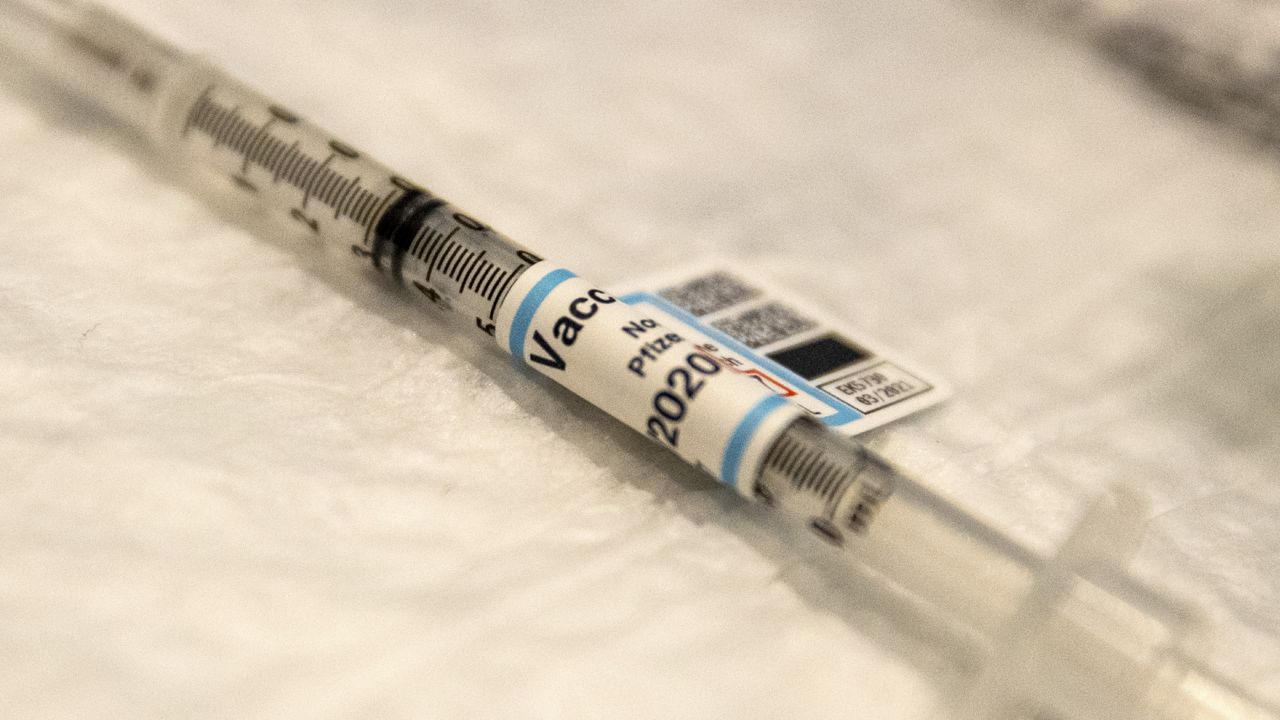LOS ANGELES — As state and local health officials begin to administer more vaccines for the coronavirus, most of the general public expect a return to normalcy soon.
For many workers, that could mean coming back to the office physically.
It's been nearly a year since the coronavirus pandemic began, and many workers were required to work from home as part of an effort by state and local governments to slow the spread of the virus.
Now that several vaccines have arrived, the big question for many employees is if their employer will require them to be inoculated for COVID-19 before coming back to the office, post-pandemic, and for employers, if they should mandate vaccination.
It is the most important issue employers face, according to a Morrison & Foerster survey conducted last fall.
"The biggest challenge for employers operating in this largely uncharted territory is weighing the benefits and potential legal risks of mandating employee vaccinations against the benefits and potential legal risks that not doing so would pose to the business," said the authors of the survey.
The Morrison & Foerster survey conducted last fall of in-house general counsel from 80 global corporations found that 55% of companies expect most of their workforce to be back at the office a year from now or sooner. About 56% of companies said more than half of their workforce would need to be vaccinated before returning to the office.
The survey found that 57% of respondents expect employment/human resource litigation to remain the top issue they face. There are already several lawsuits filed nationwide. According to Law 360, many lawyers expect some employees to cite the Americans with Disabilities Act as an argument to continue to work remotely.
"There have been lawsuits across the country by employees regarding a number of COVID-related issues," Janie Schulman, a partner at Morrison & Foerster and one of the survey's authors. "They range in the topic. Some of them involve issues regarding employees who believe they should be working remotely. There is some litigation, and I expect there to be more over time regarding COVID-related employee issues."
Spectrum News spoke to Schulman, a member of the firm's coronavirus task force, about the return to work issue.
Generally, the answer is yes. An employer can require employees to take the vaccine. The Equal Employment Opportunity Commission, the EEOC, issued guidance on December 16 on this subject for the first time and indicated that, from their perspective, it would be acceptable for employers to mandate the vaccine.
[However], it is subject to the legal obligations to make reasonable accommodations for people with disabilities and employees with religious beliefs.
No. An employer is not to automatically fire an employee just because they can't take the vaccine. There's a process they have to go through. They have to go through an interactive dialogue [with the employee], explore reasonable accommodations, and then only, as the last resort, if there's not a way to safely accommodate the employee and it poses a continued threat to other employees or the public, then you go ahead and terminate. Every situation is different.
Yes, absolutely. There's no law that would prevent an employer, even in non-COVID times, from requiring employees to wear masks. You have plenty of employers that have a [dress code] or uniform. Some restaurants require their employees to wear a sailor uniform or whatever the theme is.
Obviously, if someone has a health or religious issue, they have to go through the interactive process and look for reasonable accommodations. But in general, employers can decide what employees wear to work and the precautions they have to take.
Especially, as long as COVID poses any threats, I think employers can safely require employees to socially distance and wear masks and take other precautions.
The first thing to remember is employers can't guarantee anybody that they can't get COVID from work. It's the nature of this disease. Employers are certainly not obligated to provide a workplace where there is that level of safety where employees are absolutely not going to get COVID from work. It's going to happen even with the most prudent employer.
But I would say employers would be wise to make sure they are up on the experts' recommendations. They should take reasonable steps to implement the experts' guidelines and read up on applicable regulations in their area. It's going to vary from location to location, and [they'll need to] do their best to comply with those rules.
